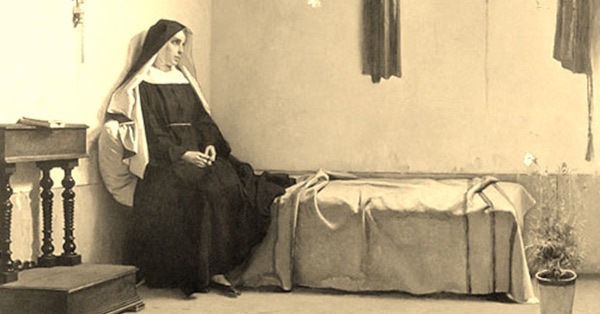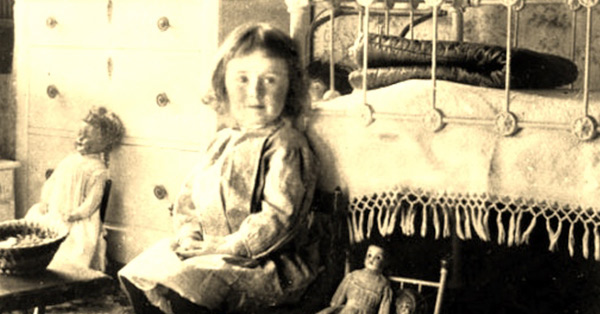
ROAMIN’ CATHOLIC
It is often believed that children are more readily attuned to paranormal experiences, possibly because they have not developed many of the prejudices that adults have against such phenomena. As young children do not possess fully expanded thought processes they are unable to filter what the adult mind might consider irrational and not scientifically proven.

As a former teacher, I had many of my younger students tell me they had seen and, in some cases, even spoken with their deceased grandparents; moreover, none had been alarmed by the experience. This leads me to an account of paranormal phenomena experienced by one particular young child while left alone in her home.
In the early part of the last century, Joy Channan, then seven years of age, lived in a house in Beaconsfield Villas, near Preston Park, Brighton. Joy was often left with the housekeeper when her parents when out for the evening. However, once the child had been put to bed, the housekeeper would frequently slip out for the odd nipperkin at the local tavern.
During these furtive excursions, Joy would frequently be paid a visit by what appeared to be a caring and comforting apparition. Just before going to sleep, Joy would come to find herself in the presence of a kindly nun, dressed in a black habit, seated at her bedside. As a small child Joy only had a vague notion of ghosts and the appearance of the nun, as she recalled, always seemed quite solid and three dimensional. The child had felt no fear, merely a calm and consoling reassurance.

It was not long before the reckless housekeeper’s indiscretions were noted and was despatched from her employ. Interestingly, from that moment on, Joy never saw the nun again.
Manifestations of ghostly nuns and monks have been reported at various religious locations around the country. It is thought that their spirits remain as guardians to the living. Could the spectre at Joy’s bedside have been doing just that due to the absence of the housekeeper?
Children’s imaginations begin developing around 2½ to 3 years of age, marking the start of pretend play, and in 65% of children that comes with the arrival of an imaginary friend or two; mostly, because they’re fun. “Children are naturally imaginative, and exercising their imaginations is good for their emotional and mental health,” says Laura Markham, Ph.D., author of Peaceful Parent, Happy Kids. “Kids who have imaginary friends enjoy them, so they always have someone to play with if they feel lonely or bored. My daughter, at ages 3 and 4 used to say, ‘I’m going to play with Betsy now,’ and then yak away for half an hour in her bedroom.”
I was also reminded that, when little, I too had an imaginary friend of my own that I would talk to and play with. However, for a seven-year-old to have a nun as an imaginary friend would indeed be deemed most unusual.
